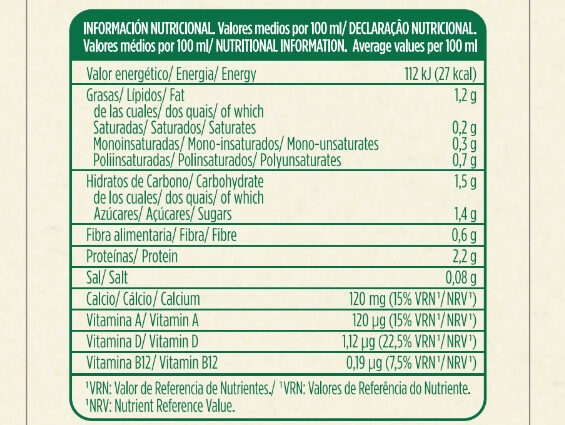Vivesoy Ligera - Pascual - 1 l
This product page is not complete. You can help to complete it by editing it and adding more data from the photos we have, or by taking more photos using the app for Android or iPhone/iPad. Thank you!
×
Some of the data for this product has been provided directly by the manufacturer Pascual (Leche Pascual, Bezoya, Vivesoy, Mimik, Bifrutas, Dinamic Protein).
Barcode: 8410128785208 (EAN / EAN-13)
Common name: Bebida de soja ligera con calcio y vitaminas A, D y B12
Quantity: 1 l
Categories: Plant-based foods and beverages, Beverages, Plant-based foods, Legumes and their products, Dairy substitutes, Milk substitutes, Plant-based beverages, Plant-based milk alternatives, Legume-based drinks, Soy-based drinks, Sweetened plain soy-based drinks
Labels, certifications, awards: Nutriscore, Nutriscore Grade A, es:100 % Cultivo Local
Origin of ingredients: Spain
Countries where sold: Spain
Matching with your preferences
Environment
Carbon footprint
Packaging
Transportation
Report a problem
Data sources
Product added on by kiliweb
Last edit of product page on by tasja.
Product page also edited by alexfauquette, elcoco, moon-rabbit, org-pascual-leche-pascual-bezoya-vivesoy-mimik-bifrutas-dinamic-protein, teolemon, yuka.sY2b0xO6T85zoF3NwEKvlhMXbv7Gkz6ULkbhoG6U68nTE4PYfMl-89PqOKs.









